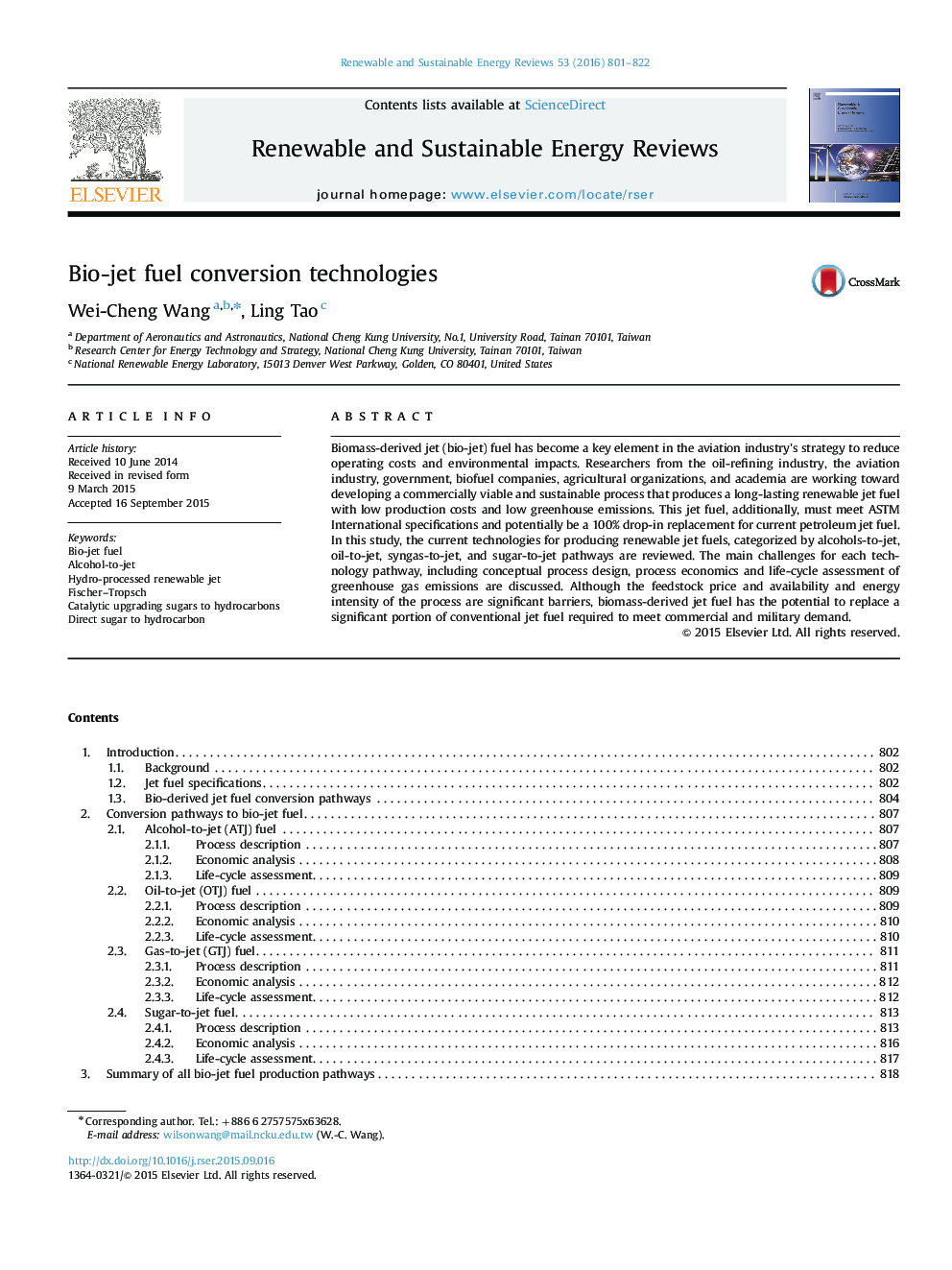| Article ID | Journal | Published Year | Pages | File Type |
|---|---|---|---|---|
| 8115609 | Renewable and Sustainable Energy Reviews | 2016 | 22 Pages |
Abstract
Biomass-derived jet (bio-jet) fuel has become a key element in the aviation industry׳s strategy to reduce operating costs and environmental impacts. Researchers from the oil-refining industry, the aviation industry, government, biofuel companies, agricultural organizations, and academia are working toward developing a commercially viable and sustainable process that produces a long-lasting renewable jet fuel with low production costs and low greenhouse emissions. This jet fuel, additionally, must meet ASTM International specifications and potentially be a 100% drop-in replacement for current petroleum jet fuel. In this study, the current technologies for producing renewable jet fuels, categorized by alcohols-to-jet, oil-to-jet, syngas-to-jet, and sugar-to-jet pathways are reviewed. The main challenges for each technology pathway, including conceptual process design, process economics and life-cycle assessment of greenhouse gas emissions are discussed. Although the feedstock price and availability and energy intensity of the process are significant barriers, biomass-derived jet fuel has the potential to replace a significant portion of conventional jet fuel required to meet commercial and military demand.
Keywords
Related Topics
Physical Sciences and Engineering
Energy
Renewable Energy, Sustainability and the Environment
Authors
Wei-Cheng Wang, Ling Tao,
